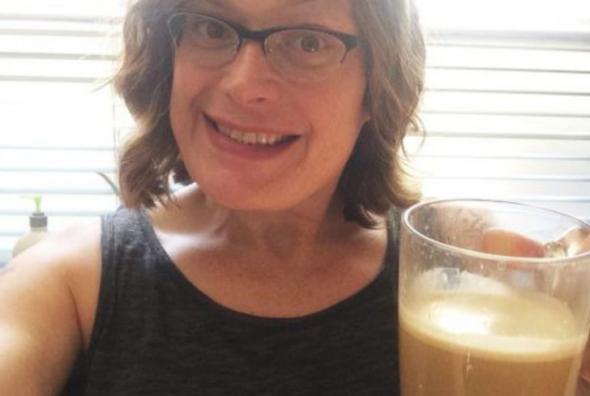When Lilly Wachowski came out as a transgender woman on Tuesday, she did it under duress. The filmmaker (who, along with her sister, Lana, is best known for her work on the Matrix trilogy and, more recently, the Netflix series Sense8) said in a statement released to the Windy City Times that while she’d begun transitioning about a year ago and was out to family, friends, and some colleagues, she had put off making a public announcement in the interest of taking “some time to get my head right, to feel comfortable.” A reporter from the U.K. tabloid Daily Mail unceremoniously ended that highly reasonable period of adjustment when he showed up unannounced at Wachowski’s door on Monday, essentially threatening to out her—as, Wachowski notes, his publication did to Lucy Meadows, who later committed suicide—if she did not agree to an interview. “[A]pparently I don’t get to decide this,” the filmmaker said of realizing she had no choice but to make a statement.
There’s no question that forcing Wachowski’s hand this way is despicable, but I think it’s worth taking a moment to praise—really, to marvel at—what she did with that atrocious situation. The statement she produced is in many ways a model of what a celebrity coming-out should ideally be. By turns politically engaged, introspective, and aware of context, the whole thing is worth reading in full—but I want to highlight a few moments to savor.
Wachowski leads with her experience of media pressure to disclose, a threat that apparently began well before the Daily Mail intruded on her life. “There’s the headline I’ve been waiting for this past year,” she writes. “Up until now with dread and/or eye rolling exasperation.” But instead of turning that situation into a melodrama unique to her, she immediately situates it in the context of how dangerous outing is for all trans people give its connection to “the statistical horrors of transgender suicide and murder rates.”
Her awareness that her experience is not singular—and indeed, that due to her relative privilege as a successful white trans woman, not as risky as it might have been—continues further on in the statement. “Having the support of my family and the means to afford doctors and therapists has given me the chance to actually survive this process,” Wachowski acknowledges. “Transgender people without support, means and privilege do not have this luxury. And many do not survive.” She adds to this the disproportionate violence facing trans women of color, the growing threat of transphobic “bathroom bills,” and the fact that, due to police misgendering, official stats do not really account for all the incidents of assault and murder experienced by trans individuals. Here is a woman aware of her position in society and tuned in to the problems facing the less fortunate members of her community.
But perhaps more impressive, Wachowski is also thoughtful about the concept of transness itself. “But these words, ‘transgender’ and ‘transitioned’ are hard for me because they both have lost their complexity in their assimilation into the mainstream,” she writes.
There is a lack of nuance of time and space. To be transgender is something largely understood as existing within the dogmatic terminus of male or female. And to “transition” imparts a sense of immediacy, a before and after from one terminus to another. But the reality, my reality is that I’ve been transitioning and will continue to transition all of my life, through the infinite that exists between male and female as it does in the infinite between the binary of zero and one. We need to elevate the dialogue beyond the simplicity of binary. Binary is a false idol.
Whether or not you agree with this queer, binary-critical reading of trans identity, you have to respect Wachowski’s insistence on including it in the same document as her initial coming out. Despite her later protestations that her “tiny brain” cannot easily comprehend queer or gender theory, this paragraph bespeaks an analysis of gender that is next-level compared to what we usually hear in such stories. That’s not to say it’s “better” than anyone else’s self-narration—as Wachowski’s specifies, this is only her reality—but just that it’s powerful to see someone willing to put complexity front-and-center in their story.
Wachowski ends with a commitment to joining the “Sisyphean struggle of progress,” but not just in the realm of policy or social tolerance. Instead, following a quote from the queer theorist José Muñoz, she wants “in my very being, [to] be an example of the potentiality of another world.” This is an understanding of minority identity that goes beyond bland “diversity” or “acceptance”; for Wachowski, her transness itself has the power to help remake the world—or at least challenge its restrictions. That the co-creator of The Matrix, Jupiter Ascending, and Sense8 feels this way may not be totally surprising; but in a trans media landscape currently benighted by the inane, self-destructive ramblings of Caitlyn Jenner, it’s surely refreshing. Indeed, considering that the two women seem to have been transitioning at roughly the same time, it’s striking that Wachowski’s 1,100 word statement ends up being more on point and instructive than anything Jenner has produced in her steady stream of gaffes, apologies, and reality television programming. And that was under coercion—I can’t wait to hear what she will say of her own free will.
